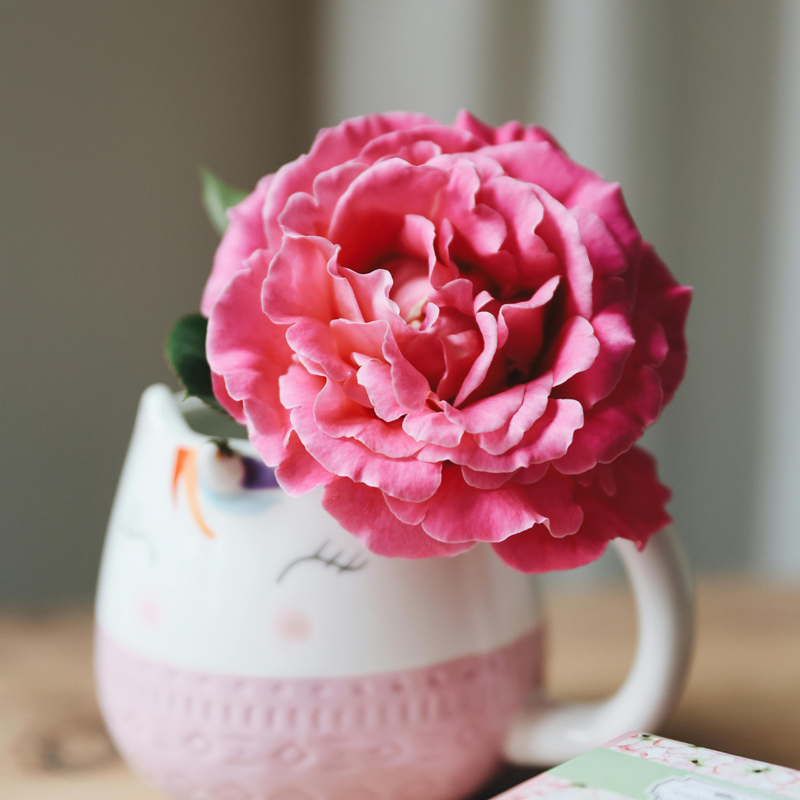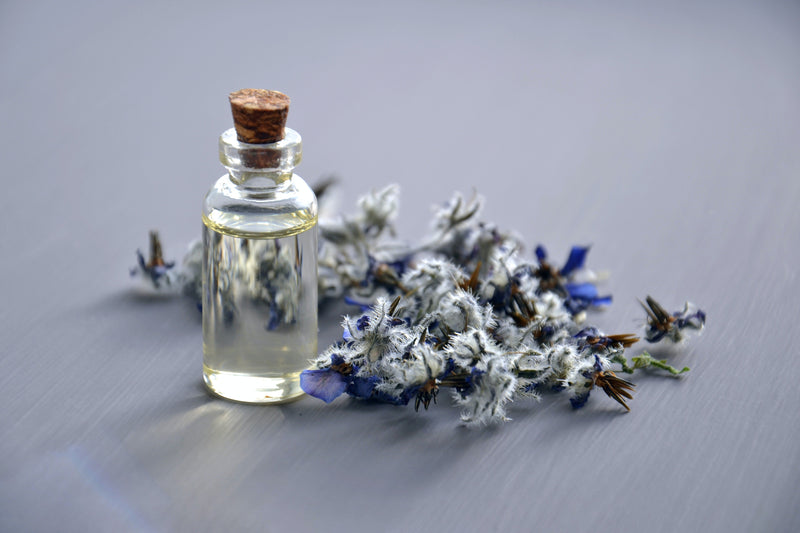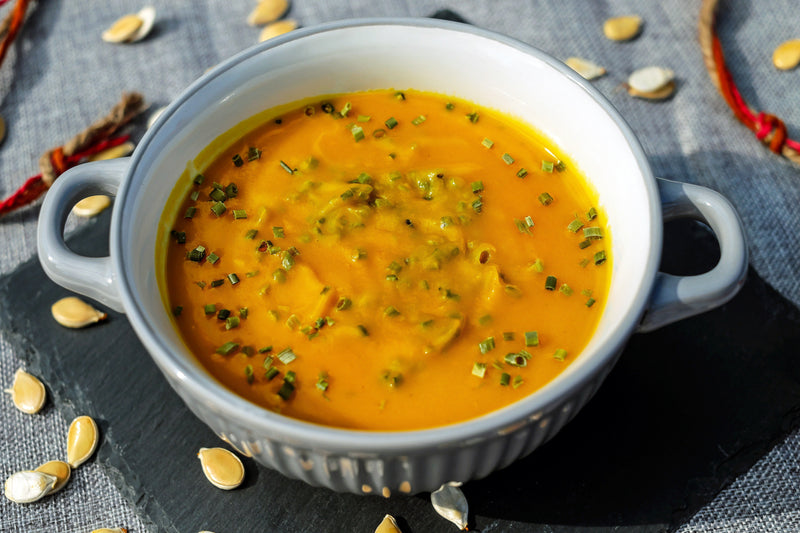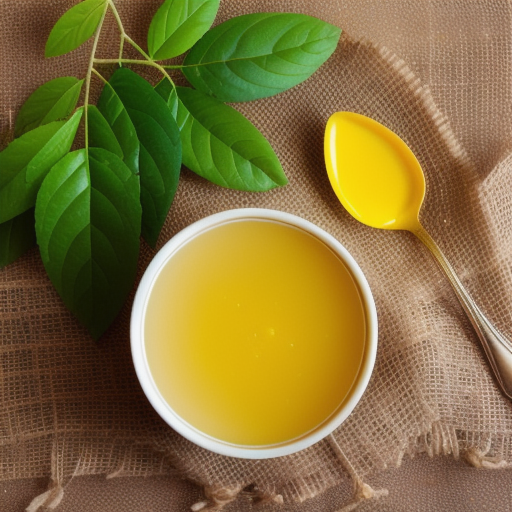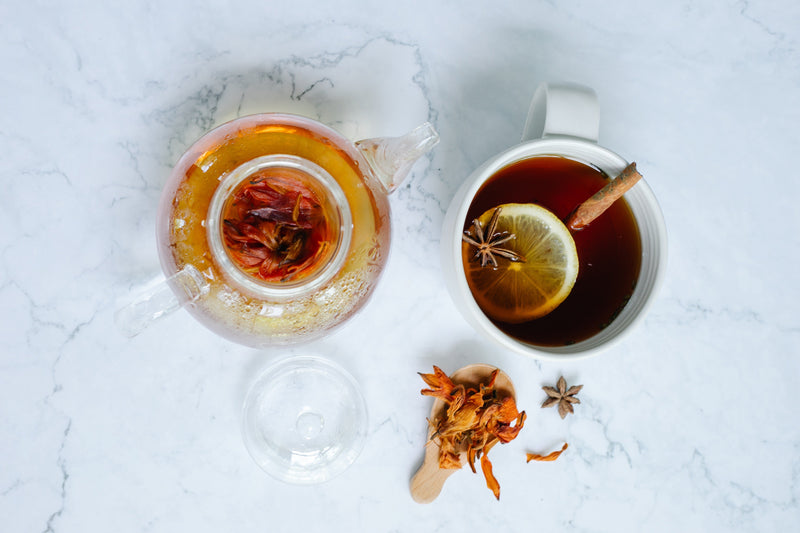Articles – by Prakriti Sattva
Recipe: Herbal Teas for the Winter Season | Vata Season
The Vata Season | Fall and Winter Season
When Winter is in full swing, drop in temperature, low humidity, and more time spent indoors with drying heat from the furnace start to show effects on our bodies both inside and out. The body starts to feels dry and dehydrated, and we know it's time to start adding in extra hydration to our routines. To remain hydrated, we need to follow a seasonal routine, known as Ritucharya in Ayurveda. Based on our Ayurvedic Body Constitution known as Prakriti, age and location, following a customized seasonal routine is beneficial in maintaining the balance in the body.
Ritucharya during winter includes, but is not limited to, hydrating inside and out with warm and unctuous foods. We all know that sipping on warm water throughout the day is a great way to hydrate, but can get monotonous and boring sometimes and might call for some change in flavor. Herbal teas are a great option to keep our bodies warm and hydrated during the winter. Herbal teas are not teas if you ask someone who likes to drink black tea or green tea - which contain caffeine and give a temporary boost in mood and energy. Herbal teas are decoctions and infusions of herbs and spices, also known as Kashayam in Ayurveda. Decoctions are prepared by mixing herbs and spices in water and boiling down the water to a concentrated liquid. Infusions are letting the herbs and spices steep in hot water for about 15 minutes.
Herbs for Vata Season | Winter Season
The below Herbal tea recipes are a few of the ways in which you can not only add flavor to the regular water but also ingest the beneficial Sattva / essence of the herbs and spices. According to Ayurveda, each herb and spice has its own unique quality which aids in supporting and healing of the body. The herbs used are various parts of plants such as roots, stem, leaves, flowers, fruit and seed. They can be used fresh or in dried form when the fresh herbs are not available. The dried herbs are also milder in potency than the fresh herbs. Some of the great herbs to use as herbal teas in winter are Rosemary, Oregano, Sage, Peppermint, Ginger, Turmeric, Black Pepper, Tulsi / Holy Basil, Ashwagandha, Lemon Balm, Lemongrass, Cinnamon, Cloves, Rooibos.
Soothe a congestion, cold - herbal tea:
This kapha reducing tea helps remove the excess kapha as it kindles the Agni / Digestive fire. It is soothing as well as invigorating and ideal for this season. This tea is also great if there is congestion and mucus in the nose and throat. The herbs used in this tea are
Ginger - helps reduce phlegm, improves digestion;
Turmeric - know to be anti-inflammatory and anti-oxidant;
Black Pepper - helps reduce phlegm;
Tulsi / Holy Basil - supports immunity, nervine;
Lemon - supports immunity, helps reduce phlegm;
Honey - helps soothe the throat, reduces phlegm, supports in fighting infections.
Ingredients:
1 teaspoon Ginger, fresh grated or dry powder
1/4 teaspoon Turmeric, dry powder or 1/2 inch fresh sliced
1/4 teaspoon Black Pepper, crushed
1 teaspoon Tulsi/Holy Basil leaves, dried crushed or 5 fresh leaves
1 1/2 cups water
1/4 lemon
Honey to taste
Method:
In a pot, add Ginger, Turmeric, Black pepper, Tulsi. Add the water and bring to a boil.
Simmer for 15 minutes.
Strain to a cup. Squeeze the lemon juice. Add honey to taste and mix well.
Calming Tulsi-Ashwagandha herbal tea:
The cold, dry Winter season causes an increase in Vata Dosha in the body. Vata Dosha may trigger Anxiety in some people who may have a Vata imbalance (Vikriti) in their body. Herbs used in this tea are:
Tulsi / Holy Basil : According to Ayurveda, Tulsi / Holy Basil is an Adaptogen which is known to calm the mind, relieve anxiety, and help relieve stress. It also helps in getting a good night's rest. It is good for Vata in digestive system. It is said to increase Prana (life force) in the body.
Ashwagandha : This is another of the Ayurvedic herbs which is an adaptogen, and has a warming and energizing effect on the body. Thus it is suitable in a Vata imbalance which can happen during the cold, dry months of Winter. It is also a stress reliever and good for calming down and relaxing.
As mentioned, Tulsi - Ashwagandha herbal tea is a great de-stressing and relaxing tea. It can be taken at any time of the day but is useful especially for a good night's sleep. Quality sleep time is essential for a healthy body and mind. It may also support immunity, which is much needed during the Winter months of the Vata Season. Drinking this tea before bedtime, along with cow's milk (if not lactose intolerant), aids in good sleep. If dairy is not an option, cow's milk can be substituted with almond milk or coconut milk. Milk can also be skipped and water can be used instead.
Ingredients:
1 teaspoon Tulsi / Holy Basil, dried crushed or 5 fresh Tulsi leaves
1/4 teaspoon Ashwagandha powder
1/2 teaspoon rock sugar or Jaggery or Coconut Sugar (optional)
1 cup water
1/4 cup milk of choice (optional), warmed
Method:
In a pot, add the Tulsi, Ashwagandha and water. Bring to a boil and then simmer for 15 minutes.
Strain into a cup.
Add warm milk of choice (optional) and sweetener of choice.
Stir and enjoy.
Spicy Rooibos Chai Tea:
This is a great substitute for the Indian spiced Chai Tea. The Rooibos in this tea gives it the color similar to black tea, but without the caffeine. Rooibos is also known to be a great anti-oxidant. Spices added to the Rooibos infusion gives it the flavor of Indian spiced Chai. The warming spices also add to the benefit of having a warm cup of tea during Winter. It goes well with snacks on the side for a cold evening. Dairy in this recipe may be substituted with a non-dairy milk of your choice to make it vegan..
Ingredients:
1 teaspoon loose leaf Rooibos
1/4 teaspoon dry Ginger powder
1/4 teaspoon Cardamom, ground
1/4 teaspoon Cloves, ground
1/4 teaspoon Cinnamon, ground (optional)
3/4 cup water
1/4 cup milk of choice
1 teaspoon sweetener (Jaggery/rock sugar/coconut sugar/honey)
Method:
In a pot, add the Rooibos, Ginger powder, Cardamom powder, Cloves and water.
Bring to a boil and then simmer for 15 minutes.
Add in the milk of choice and let it come to a boil. Make sure it doesn't boil over and spill. Turn off the flame and remove the pot from the stove so that it doesn't boil over.
Strain into a cup and add the sweetener of choice.
Enjoy it warm.
If you would like personalized Ayurvedic diet and lifestyle suggestions, contact us or sign up for a consultation.
Please note: This post is not medically qualified. This post is written by an Ayurvedic Wellness Practitioner. If you have even the slightest doubt about any of these herbal teas and/or their ingredients, please consult with your doctor about them before using them.











